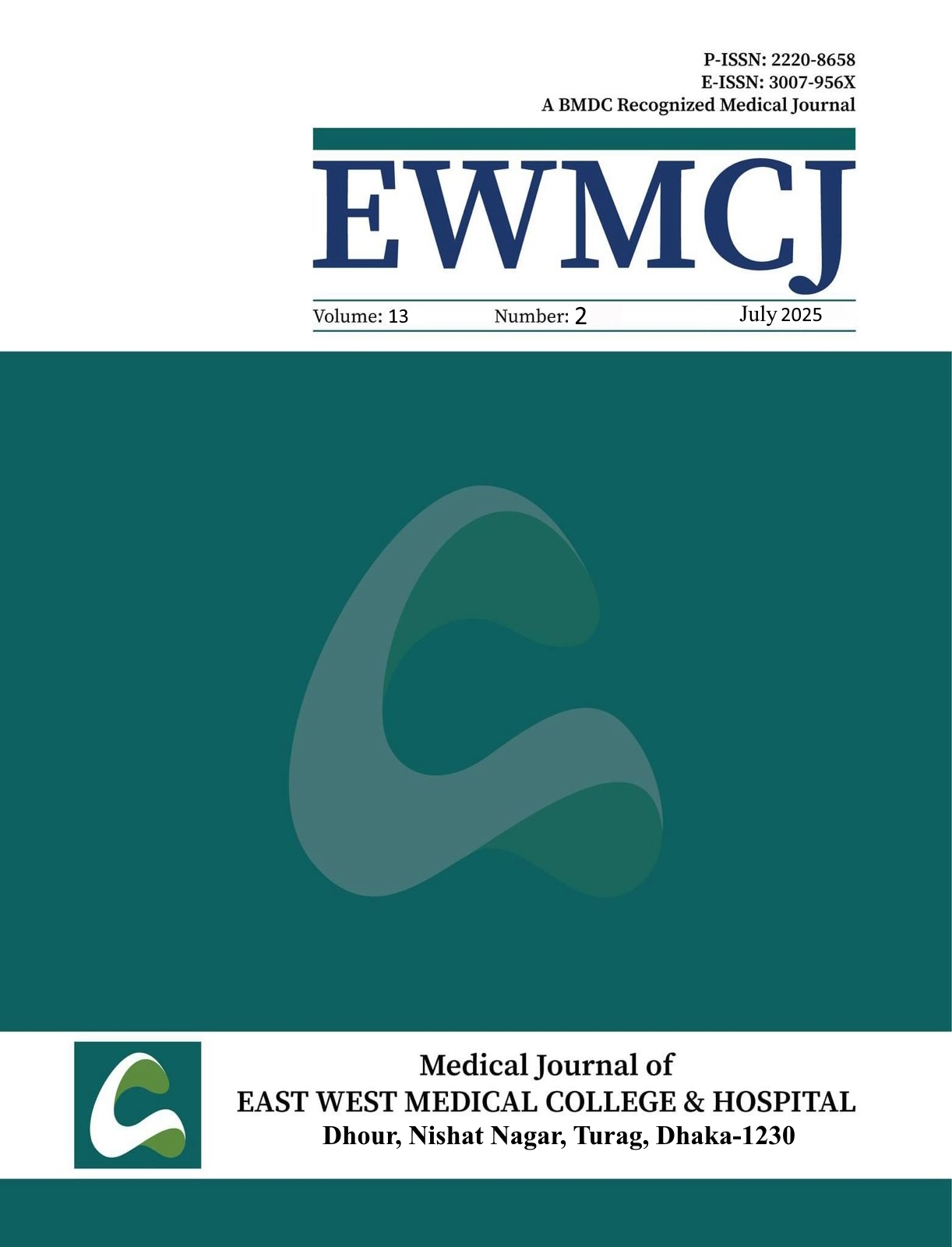Knowledge Attitude & Practice (Kap) About Infection Prevention Control (Ipc) And Waste Management During Covid-19 Among The Healthcare Workers In Primary Level Government Hospitals In Bangladesh
DOI:
https://doi.org/10.3329/ewmcj.v13i2.79186Keywords:
IPC, Waste Management, COVID 19, Infection preventionAbstract
The goal of infection prevention and control is to systematically put a barrier between the organism and the susceptible host. Additionally, it refers to all measures taken by the healthcare facility to minimize or reduce the threat of the spread of infectious diseases. IPC is relatively an inexpensive way to prevent healthcare-associated infection. Patients, healthcare professionals, and communities are at danger when basic infection prevention and control procedures are not followed. In many developing countries, healthcare professionals do not follow infection prevention methods despite the rise in highly contagious illnesses like COVID-19.
The aim of the study was to assess the status of knowledge attitude and practice on IPC and Waste management among the health care workers working in the primary level government hospitals. The study was a cross-sectional descriptive type of study. The target population was the healthcare workers working in the primary level government hospitals in Cumilla District. The study was be carried out from August 2021 to September 2022 in the 17 Upazilla of Cumilla District. Non-probability convenient sampling method was followed for sampling. Our calculated sample size was 261. A structured interview questionnaire was prepared to gather the required information. A Chi-square test and a logistic regression model were used to analyze the data.
Prevalence of knowledge was 54.5%, 96.8% of the respondents have a positive attitude towards infection prevention control and 87.3% has maintain a good practice of IPC. From analysis age of the respondents which are <25 years are less knowledgeable than the other age groups. (AOR= 34.75; 95% CI: 4.532-266.554, AOR= 39.429; 95% CI: 4.959-313.462, AOR=39.429; 95% CI: 43.661-268.708). Health assistants (AOR= .015; 95% CI:.002-.111) and Nurses are AOR= .013; 95% CI: .001-.124) 98% less knowledgeable than physicians. Diploma students are less knowledgebale AOR= .012; 95% CI: .012-.002), then MBBS. The facility which has IPC team are more knowledge than those who don’t have (AOR=.103, 95% CI:.035-.307), Triage facility 76% less (AOR= .495; 95% CI:.236-1.037), The respondents who received Hand hygiene training sometimes are 89% less knowledgeable than who received often (AOR= .107; 95% CI: .029-.388)
The study showed that majority of the health care workers were knowledgeable and practices IPC, Doctors and nurses are more knowledgeable, where other HCW are less knowledgeable and receives less trainings. Many of the facility do not have any IPC committee, Regular trainings, monitoring, and supervision is recommended to avoid the risk of accidental infection due to lack of IPC knowledge and practice.
EWMCJ Vol. 13, No. 2, July 2025: 76-90
307
254
Downloads
Published
How to Cite
Issue
Section
License
Copyright (c) 2025 Abdur Rahman

This work is licensed under a Creative Commons Attribution 4.0 International License.




